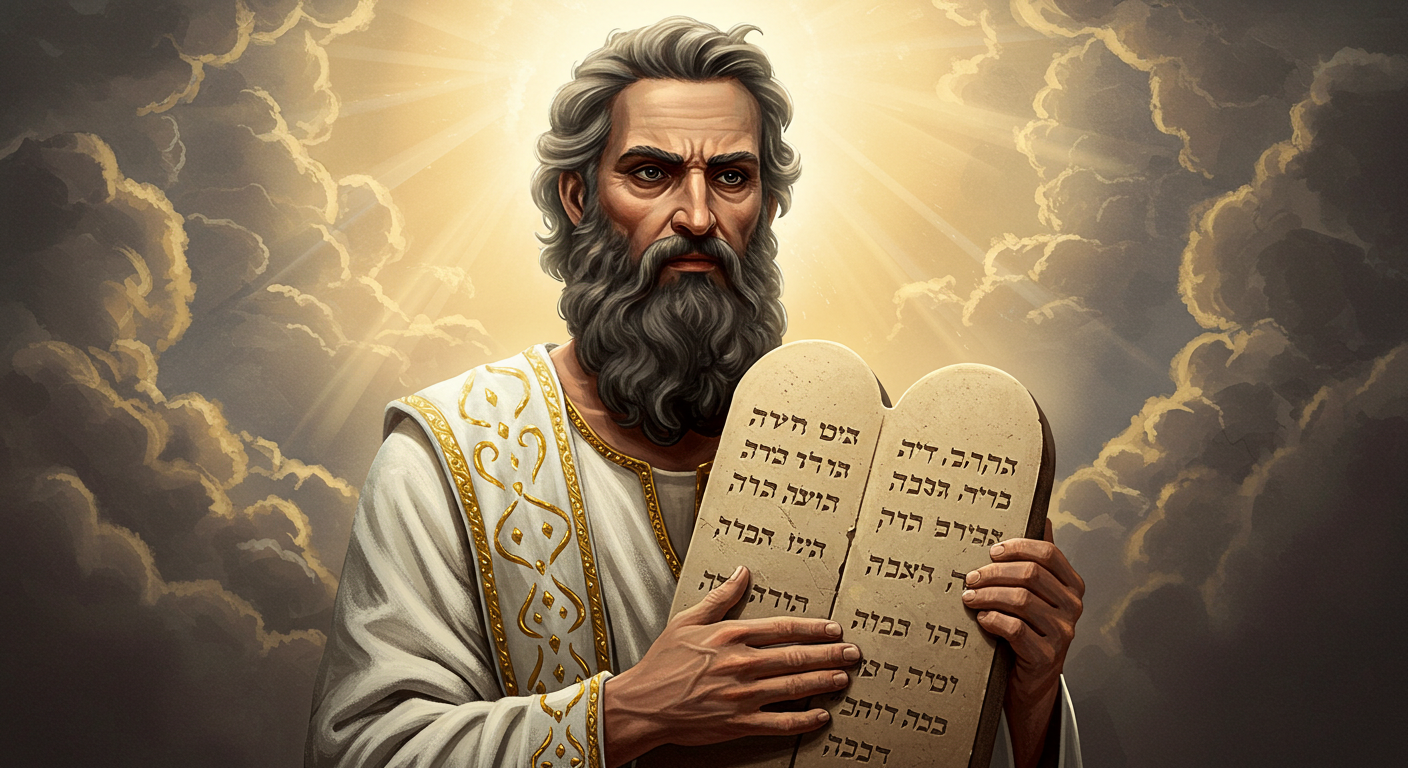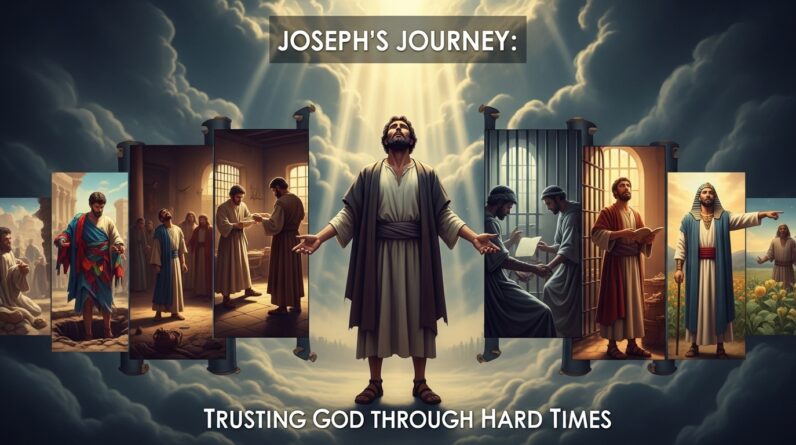Explore Moses’ humble leadership journey—from a reluctant shepherd to a prophet leading with faith and resilience. Discover timeless lessons in humility and purpose.
Moses: Leadership In Humility – Exodus 3:1-12; Numbers 12:3

Introduction
Moses stands out as one of the most significant figures in the biblical narrative, a beacon of leadership and humility in a story that spans both miraculous wonders and human frailty. Born into a period of peril, he emerges as a reluctant leader who converses with God through a burning bush, delivers the Israelites from Egyptian bondage, and receives the Ten Commandments on Mount Sinai. His journey is a testament to divine calling, human inadequacies, and the transformative power of humility. Through Moses, we learn about the essence of leadership that is deeply rooted in faith and humility, a theme timeless in both spiritual and secular settings.
Their Story in the Bible
When you first encounter Moses in the Bible, he is a man in exile, tending the flock of his father-in-law, Jethro, in the wilderness near Horeb. It is here that God calls out to him from a burning bush, an event that marks a turning point in his life and the history of Israel. Intrigued by the bush that burned yet was not consumed, Moses steps closer, and God reveals His plans for Moses to lead the Israelites out of Egypt. Overcome with doubt and insecurity, Moses questions his ability to fulfill such a divine mission, prompting a profound conversation with God about capability and calling. God assures him with the promise, “I will be with you” (Exodus 3:1-12).
Moses eventually accepts his mission, embarking on an arduous journey that demands unwavering faith and leadership. His story unfolds with a series of encounters that reveal his strength and vulnerabilities, from standing against Pharaoh, and performing miracles, to managing the grievances of the people he leads. Perhaps one of the most striking sentiments about Moses is encapsulated in a statement concerning his character: “Now Moses was a very humble man, more humble than anyone else on the face of the earth” (Numbers 12:3). This humility allowed Moses to lead with compassion and a willingness to listen and learn, even when faced with overwhelming challenges or criticism.
Lessons from Their Life
From Moses’ journey, we extract valuable lessons that resonate with our own personal and professional lives. The first lesson is the power of humility in leadership. Moses didn’t see himself as capable, yet his willingness to accept his limitations was his strength. By being humble, Moses was open to divine guidance, an essential trait for any leader who desires to serve authentically and effectively. This teaches us that leadership isn’t about owning insurmountable confidence or control but about embracing vulnerability and relying on deeper wisdom.
Another lesson from Moses’ story is the significance of faith in moments of doubt and fear. Moses demonstrates that when you answer a call to lead, you’re not expected to do it alone. God’s response to Moses’ insecurities was a promise of accompaniment, a reminder that faith is not the absence of fear, but the triumph over it through the presence of God. Therefore, Moses’ life encourages you to step into your purpose, fully aware of your human limitations, yet bolstered by trust in divine support.
The third lesson refers to perseverance amidst adversities. Moses faced immense opposition, both from external entities and internal struggles among his people. Yet, his persistence to heed his calling, and his devotion to the welfare of the people despite moments of personal frustration, is a testament to his enduring spirit. Moses’ story reminds us that true leadership is a long-term commitment rooted in service and resilience.
Connection to Today’s World
Moses’ narrative speaks volumes in today’s context, especially in an era where leadership is often equated with authority and dominance. In numerous industries and sectors, leaders are being called to re-evaluate their approaches from power-driven to service-oriented models which align more closely with humility and authenticity. Think of how Moses’ qualities—humility, faith, and perseverance—can transform modern dynamics, whether in the workplace, community leadership, or personal relationships.
In a contemporary world, characterized by rapid change and endless challenges, Moses’ journey invites you to embrace uncertainty and lead with empathy and courage. Moreover, amidst global issues that demand collective action, greenlighting the principles of service and community over competition and individualism mirrors the essence of Moses’ leadership. His life’s blueprint is a guide to navigating today’s complexities by prioritizing collaboration, understanding, and moral integrity.

Key Bible Verse
The verse that encapsulates Moses’ journey in humility and leadership is:
“The Lord said, ‘I will be with you. And this is the sign to you that it is I who have sent you: When you have brought the people out of Egypt, you will worship God on this mountain'” (Exodus 3:12).
This promise from God highlights the assurance of His presence in the face of daunting tasks, emphasizing that leadership backed by divine support is not a journey undertaken alone. It signifies the deep relationship Moses had with God, predicated on trust and faith, which propelled him to accomplish extraordinary feats.
Thought-Provoking Question
Reflect on this: In your moments of doubt or fear, do you open yourself to divine guidance as Moses did, allowing humility to shape your path, or do you resist it, holding tightly to personal plans and ambitions?
Taking Moses’ journey as an example, think critically about how you approach leadership in your life, whether at work, in your community, or within your family. Remember, it’s not about having all the answers but being open and humble enough to seek wisdom beyond your understanding.
Optional Add-Ons
Historical/Cultural Context
Understanding the historical backdrop of Moses’ life enhances his narrative. He lived during a time when Egypt was a powerful empire, and the Israelites were oppressed as slaves. His mission involved confronting the Pharaoh, an embodiment of divine ruler-ship in ancient Egypt, which added layers of risk and complexity. The cultural and political context Moses operated within accentuates the bravery and faith required of his leadership.
Comparison with Other Characters
Comparing Moses to other biblical figures like David or Esther, who also faced immense challenges, can shed light on common threads of humility and divine reliance woven through their stories. While David, known for his heart after God’s heart, contrasts with Moses’ hands-on leadership, Esther represents quiet yet profound courage similar to Moses’. Each character shows different facets of faith-driven leadership.
Prayer
A prayer inspired by Moses’ journey might be:
“Lord, grant us the humility of Moses in our leadership. Help us rely not on our strength but on your wisdom and guidance. Teach us to lead with perseverance and faith, trusting in your plan over our fears. Amen.”







